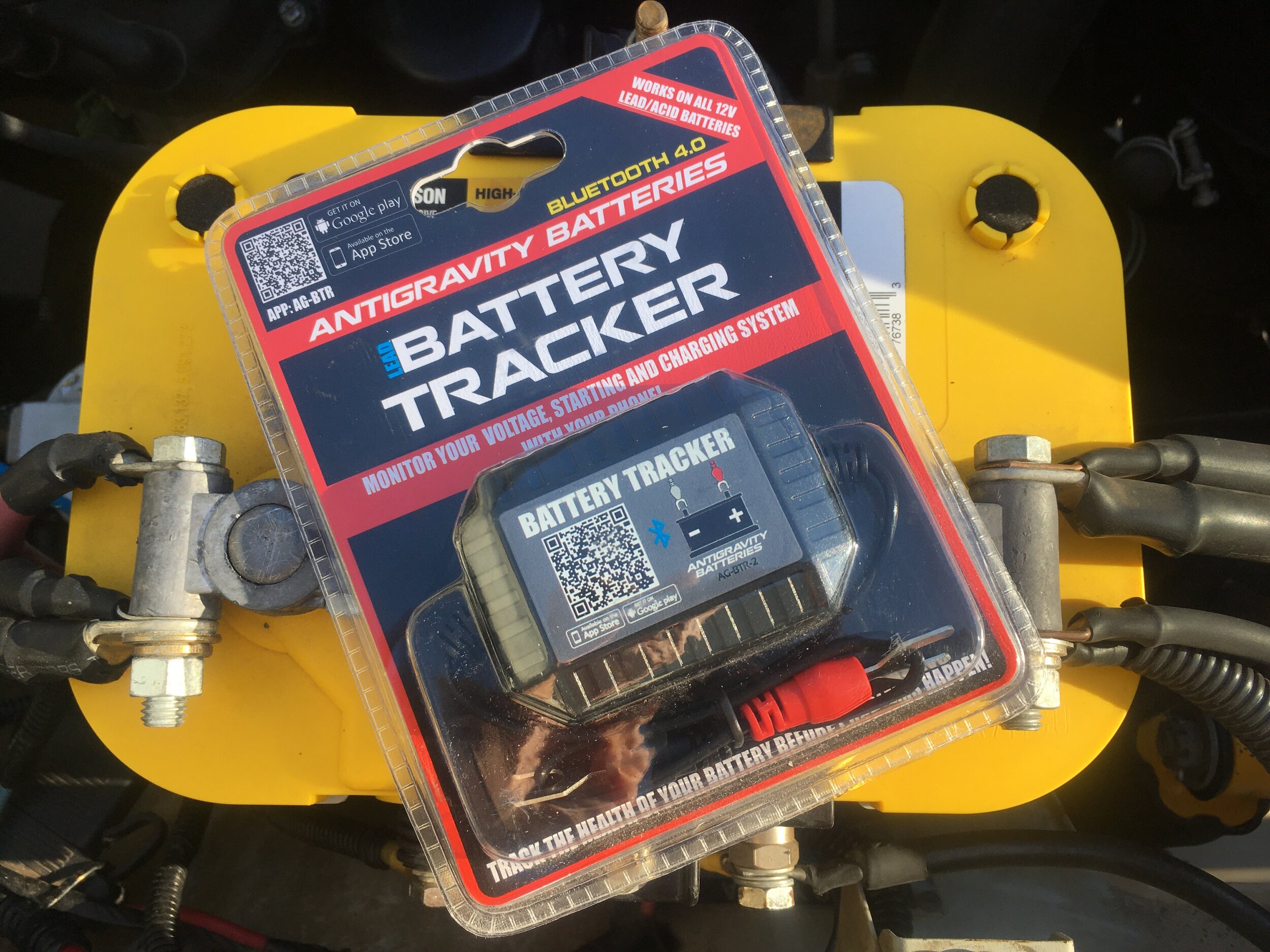I’m not much of a mobile phone person—in fact I hate the things and would happily revert to a black Bakelite dial phone in a little nook in the hallway. But such is no longer the way of the world.
One bright spot of the new world is the availability of apps, which tend to be far more useful than the average actual phone call. I have the Star Walk astronomy guide—which is pure magic—and a bird guide that not only has descriptions and photos but will play the bird’s song for you. Brilliant. Motion-X GPS of course, and several practical tools such as inclinometers and an OBDII reader.
But way too many apps seem to exist just because they can. I recently got an otherwise excellent LED flashlight to review, the programming of which is accomplished with an app. Seriously? I need to clutter my phone with another program just to tell my flashlight whether to come on bright or dim when I push the button? Absurd.
Thus—even though I’ve been a fan of Anti-Gravity Batteries and their superb Micro-Start since the beginning—I wasn’t sure about their Battery Tracker, which is also paired with an app. Nevertheless I decided to give it a try.
The Battery Tracker is designed to let you monitor battery status via a smart phone. Okay, let’s see how it works.
Well, it works about as simply as one could imagine. Use your smart phone to scan the squiggly square thing on the package. (Roseann chimes in: “Uh, that’s called a QR Code, Mr. Gates.”). And bink, there’s the (free) app. Hook the wires on the tracker to the positive and negative terminals of the battery, and you’re done. The phone pops up with the voltage. I was disappointed the tracker didn’t come with a penny’s worth of double-sided tape to adhere it to the battery, but we had some.
Okay, battery voltage. Wirelessly. I can check it from the living room. I still wasn’t really getting it, so I kept reading the instructions. Aha: you can set the tracker to send you an alert if your battery’s voltage drops into the danger zone. That’s cool. It will also run a cranking test and a charging test to confirm adequate starting power in the battery and adequate charge from the alternator. Definitely a smart thing to do before a major trip.
And yet. I still wasn’t quite fully sold on it for my own use.
Finally I realized the problem. There was nothing wrong with the product; I was just using it on the wrong battery. I swapped it from the starting battery to the auxiliary.
Suddenly it was brilliant.
Our auxiliary batteries are the ones that are working all the time, to run fridges, lights, chargers, and inverters. Some of us install voltmeters in the system to monitor them, but you need to get up from the Kermit chair and go look at it, leaving your campmates ample time to steal your drink and gorge on the snacks. Others of us simply guess how long we can go without charging until the low-voltage cutout on the fridge kicks in. Now a simple glance at the phone will tell you if it’s time to re-orient the solar panels or go for a drive. And the tracker can alert you before the beer gets warm.
But that’s not all. The tracker can give you a 31-day record of charge condition. This would be perfect when setting up an auxiliary battery system, especially with solar input. You can determine if the all-important float voltage is being reached every day—critical to long battery life.
At $36 the Battery Tracker is reasonably priced, and could be used to significantly extend the life of your auxiliary (or main) battery, saving its cost several times over.
Anti-Gravity Batteries is here.



